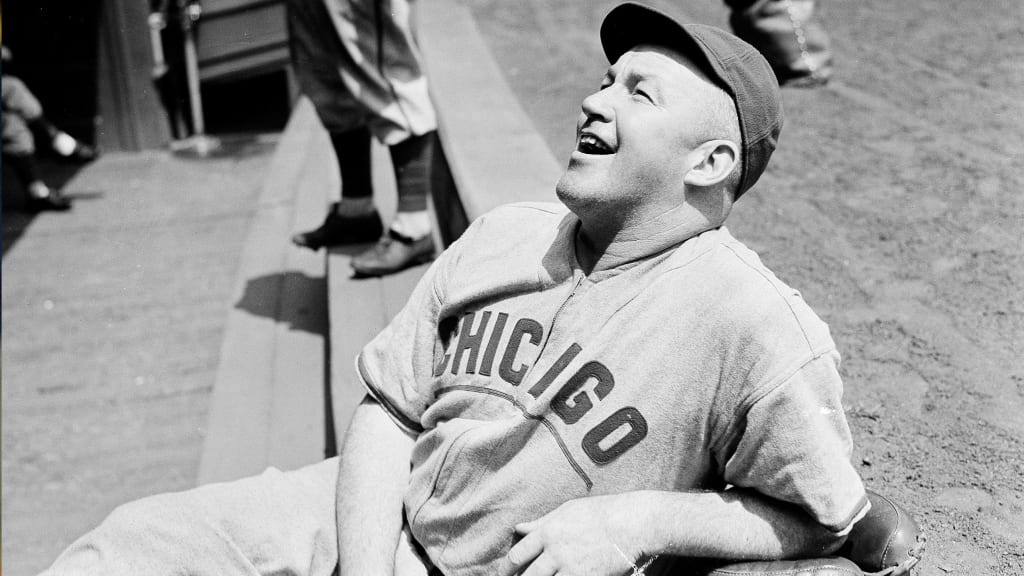
CHICAGO -- There have been many historic and memorable home runs in the long, storied annals of the Cubs' franchise.
Dexter Fowler and David Ross in Game 7 of the 2016 World Series. Kyle Schwarber to the top of the Wrigley Field scoreboard. David Bote's ultimate slam. Miguel Montero's October slam. Glenallen Hill reaching a rooftop. Sammy Sosa's record-breaking blasts in 1998. The Ryne Sandberg Game. Ernie Banks' 500th home run.
The Homer in the Gloamin' might just be the greatest of them all.
"The greatest thrill of my life," Gabby Hartnett told the Chicago Tribune after that blast in 1938.
On Sept. 28 of that '38 season, the Cubs hosted the Pirates at Wrigley Field with Chicago trailing Pittsburgh by a half-game for the National League pennant. A little more than a month earlier, the North Siders sat in fourth place and behind the Pirates by nine games.
Steadily, Chicago climbed the standings, rattling off 13 wins in 18 games between the end of August and the start of September. That run pulled the Cubs within 3 1/2 games of the Pirates, who paced the NL from July 18-Sept. 27 and appeared poised for the World Series.
The Cubs' comeback culminated with one of the great homers in baseball history.
The Pirates held a 3-1 lead in the sixth and then a 5-3 lead in the eighth, but the Cubs rallied for a pair of runs in the bottom of the eighth to pull the game into a deadlock. The issue, however, was the darkening skies over Wrigley Field, which would not install lights for another 50 years.
After Cubs pitcher Charlie Root took care of Pittsburgh in the top of the ninth, the umpires huddled and discussed the situation. They opted to keep playing as the sun set, and Pirates pitcher Mace Brown set down Phil Cavarretta and Carl Reynolds to set the stage for Hartnett.
Hartnett (a Hall of Famer) was not only the Cubs' longtime catcher, but the club's manager at the time. He slipped into an 0-2 count against Brown, who hung a curveball with the next pitch, per retellings of the tale over the years. Hartnett sent the ball sailing up into the dark Chicago sky and crashing into the left-field bleachers.
Consider the scene that followed, as described by Edward Burns in the Chicago Tribune for the Sept. 29 paper:
The mob started to gather around Gabby before he reached first base. By the time he had rounded second, he couldn't have been recognized in the mass of Cub players, frenzied fans and excited ushers but for that red face, which shone out even in the gray shadows.
After the skipper finally had struggled to the plate, things became worse. The ushers, who had fanned out to form that protective barrier around the infield, forgot their constantly [rehearsed] pretty maneuver and rushed to save Hartnett's life. They tugged and they shoved and finally they started swinging their fists before the players could carry their boss into the safety afforded by the tunnel behind the Cubs dugout.
The game-winning home run sent the Cubs to a 6-5 victory, into first place in the National League and on their way to the pennant. The Pirates lost six of their final seven games, while Chicago finished 30-12 from the point at which they were nine games back of the Bucs.
The Cubs were swept by the Yankees in the World Series, which was Chicago's fourth Fall Classic in a 10-year stretch. The Cubs returned to baseball's biggest stage in 1945, but not again until 2016. That was when another aging catcher, Ross, delivered a miraculous shot to help Chicago end its 108-year title drought.
It is believed that reporter Earl Hilligan dubbed the historic shot the "Homer in the Gloamin'" in his article for The Associated Press. The nickname was a play off a 1911 love song ("Roamin' in the Gloamin'") and has lasted through generations as part of Cubs lore.
